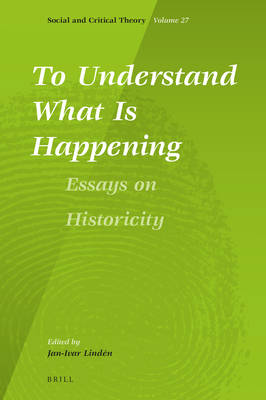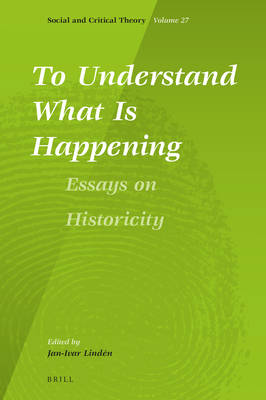
- Afhalen na 1 uur in een winkel met voorraad
- Gratis thuislevering in België vanaf € 30
- Ruim aanbod met 7 miljoen producten
- Afhalen na 1 uur in een winkel met voorraad
- Gratis thuislevering in België vanaf € 30
- Ruim aanbod met 7 miljoen producten
Zoeken
To Understand What Is Happening. Essays on Historicity
€ 215,45
+ 430 punten
Omschrijving
History stands not only for a narrative or descriptive relation to the past, but also for an ongoing process in which we are involved on several levels: in ordinary life as well as in our epistemic endeavours, natural science and technology included. Historicity is thus not only an important question for historians, but for everyone interested in understanding what all our civilisation is about. The present volume sheds some light on different aspects of this ontological dependence. The first part deals with the historicity of understanding (Françoise Dastur, Arbogast Schmitt, Samuel Weber), the second with the limits of making (Emil Angehrn, Nicholas Davey, Jan-Ivar Lindén) and the third with the future of memory (Jayne Svenungsson, Christoph Türcke, Bernhard Waldenfels).
Specificaties
Betrokkenen
- Uitgeverij:
Inhoud
- Aantal bladzijden:
- 168
- Taal:
- Engels
- Reeks:
- Reeksnummer:
- nr. 27
Eigenschappen
- Productcode (EAN):
- 9789004462618
- Verschijningsdatum:
- 17/06/2021
- Uitvoering:
- Hardcover
- Formaat:
- Genaaid
- Afmetingen:
- 155 mm x 235 mm
- Gewicht:
- 408 g

Alleen bij Standaard Boekhandel
+ 430 punten op je klantenkaart van Standaard Boekhandel
Beoordelingen
We publiceren alleen reviews die voldoen aan de voorwaarden voor reviews. Bekijk onze voorwaarden voor reviews.







